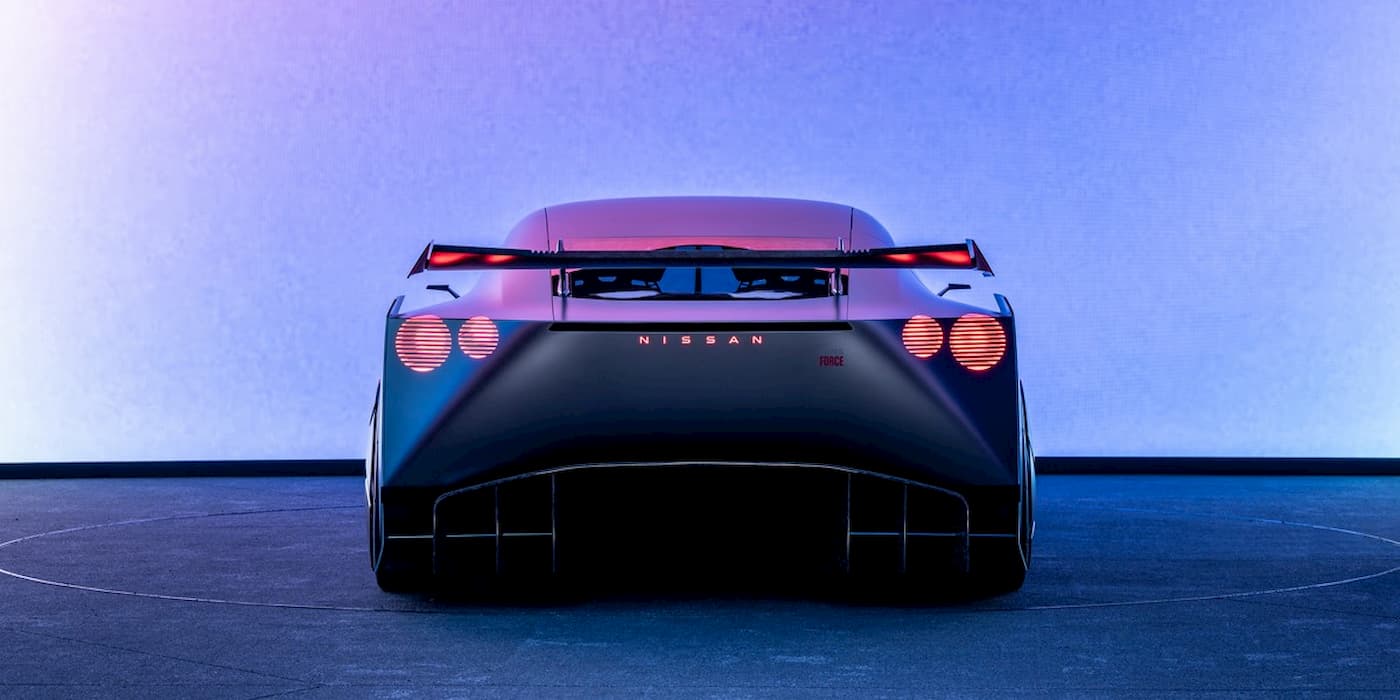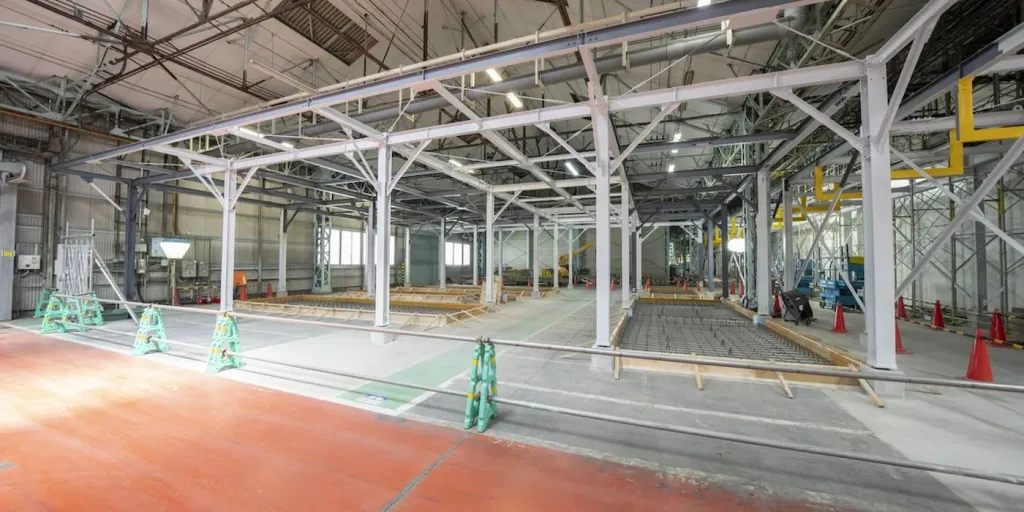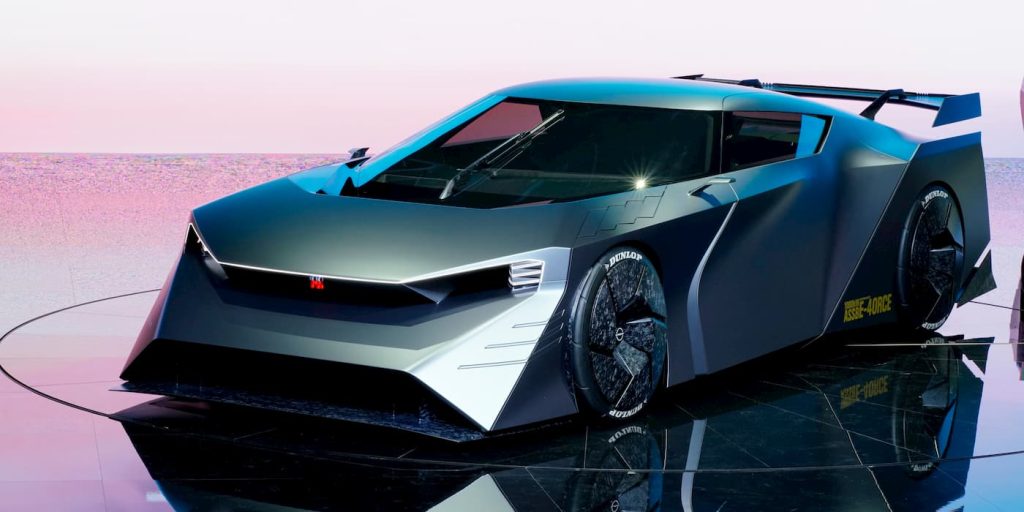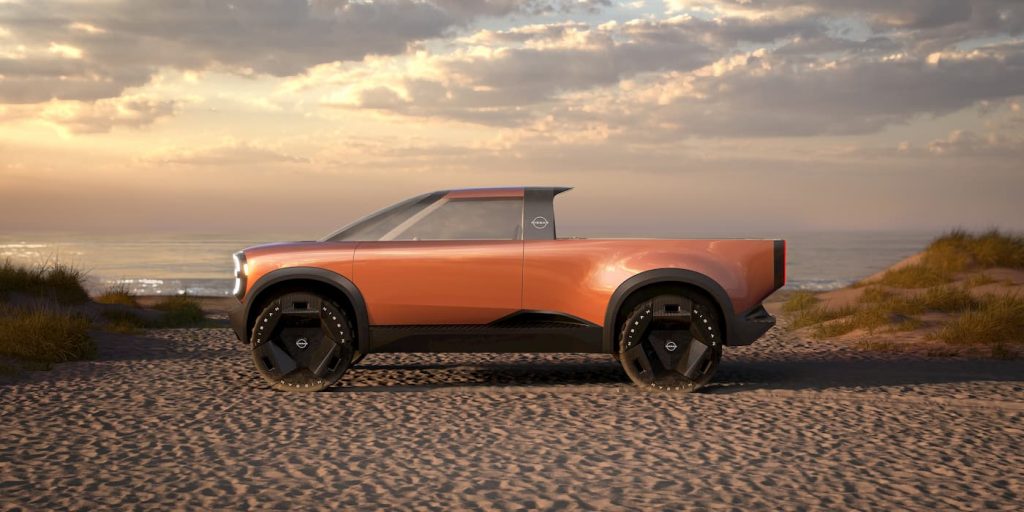
Will all-solid-state batteries be a “game-changer for EVs?” Nissan believes so. The automaker is accelerating all-solid-state EV battery development, hoping to make its electric models more competitive. Nissan kicked off construction on its all-solid-state EV battery pilot line this week with plans to introduce them in a wide range of models, including pickups.
Nissan preps for all-solid-state EV battery development
This week, Nissan showed off its all-solid-state battery pilot line at its Yokohama Plant. Under its Ambition 2030 strategy, Nissan plans to launch solid-state battery-powered EVs by early 2029.
By 2030, Nissan plans to introduce 19 new EVs with electrified vehicles (including hybrids) accounting for 55% of global sales.
A big part of Nissan’s strategy includes advanced battery tech. Nissan unveiled plans to launch EVs with all-solid-state batteries (ASSBs) made in-house by fiscal year 2028. Nissan says it can introduce better-performing EVs across more segments with ASSBs.
Nissan believes the new tech will be a “game-changer for EVs,” with the potential to offer twice the energy density of traditional lithium-ion batteries at a lower cost.
Nissan also believes solid-state batteries can reduce charging times by one-third. The company is involved in “wide-ranging research and development,” including molecular-level material research.

Using this info, Nissan is stepping up development with plans to introduce the new tech at mass scale.
Since launching the LEAF in 2010, Nissan’s Yokohama Plant has been producing electric motors. However, the plant’s biggest transformation is underway.
In October, Nissan unveiled the Hyper Force EV concept. Powered by all-solid-state batteries, Nissan claims the electric supercar can crank out up to 1,341 hp (1,000 kW).

With a shrunken Tesla Cybertruck-like feel, the exterior was designed with its NISMO racing team for maximum aerodynamics.
Nissan doesn’t refer to it as an electric GT-R, but you can see the blurred-out logo up front. The automaker hinted its electric supercar could launch by 2030.

Electrek’s Take
Nissan isn’t the only one planning to introduce solid-state batteries in its next-gen EVs. Japanese rival Toyota is also planning to launch advanced batteries.
However, Toyota has promised to launch solid-state battery-powered EVs several times now. Its first was due in 2021, then 2022, and mass production isn’t expected until after 2030.
Toyota claims its next-gen batteries will offer a 10-minute fast charge and significantly more range. Two versions are expected: a 621-mile (1,000-km) WLTP range and a further evolution 750-mile (1,200-km) model.
Top comment by VoltMan
The picture of the empty factory building is the most telling. Silly renders of concept cars, we've seen thousands of those. I admit a 10 minute recharge is intriguing, but it would save me probably 30 minutes on my 438 mile trek across Michigan that I do just twice yearly. These type of announcements are just to grab "mindshare" so consumers will put off buying EVs for some magical EVs in the future which will require chargers that aren't even built yet to reach the 10-minute milestone.
10 minute recharge is the final hurdle to ICE abandonment but those 10 minute charges have to be everywhere. Otherwise, you're driving 15 minutes out of your way to hit that charger and you're back up to 10 + 15 = 25 minutes that I get for my 2020 Model Y.
This could allow Nissan to get ahead. Meanwhile, several other companies, such as Volkswagen, Hyundai, and BMW, are advancing their plans.
Chinese EV makers are already rolling out advanced battery tech. For example, pre-orders for NIO’s new ET7, powered by a 150 kWh semi-solid state battery, opened today.
NIO is holding an endurance challenge to see if the luxury electric sedan can break CEO William Li’s 650-mile (1,044-km) range record.
Nissan, and other legacy automakers will need to get moving to prevent falling further behind.
FTC: We use income earning auto affiliate links. More.




Comments